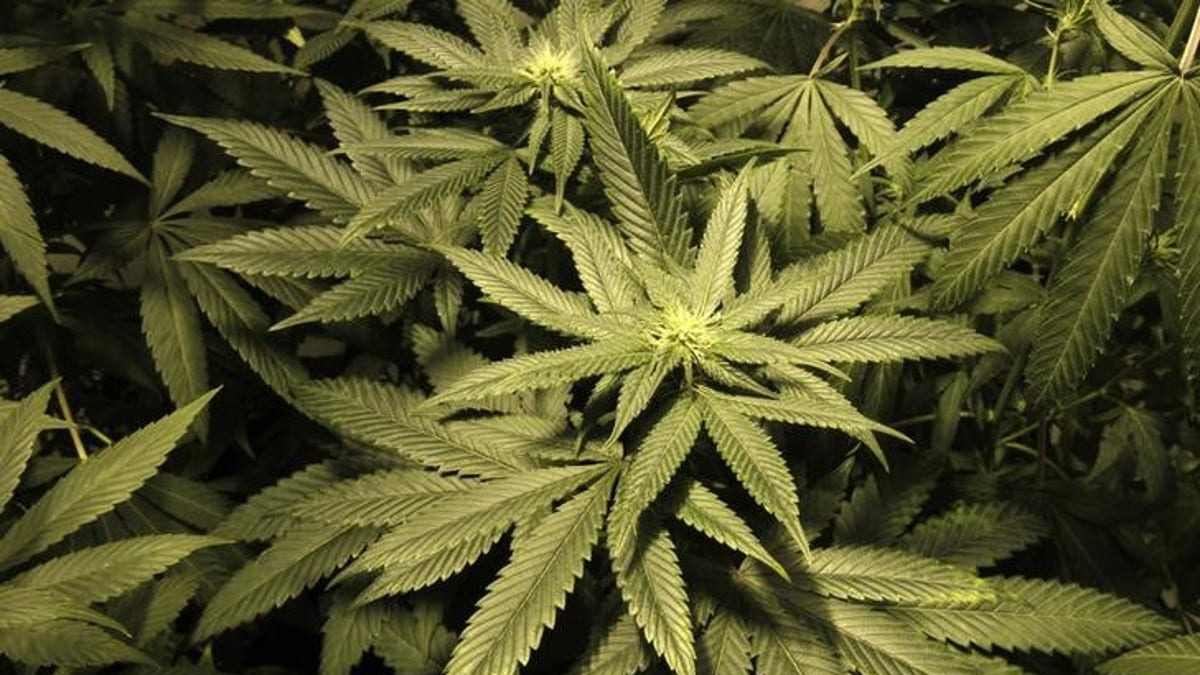
Marijuana plants are seen in an indoor cultivation in Montevideo (Copyright Reuters 2016)
Other than being at an increased risk of gum disease, people who smoked marijuana for up to 20 years during adulthood were generally as healthy as people who didn't light up, according to a new study.
The same researchers had previously found that marijuana users were at higher risk of cognitive decline and descent into lower social and economic strata, but the new study suggests the same isn't true for physical health.
"The only measures that seemed to indicate any really serious health problem was periodontal disease," said senior author Terrie Moffitt, of Duke University in Durham, North Carolina.
In periodontal disease, the gums around the teeth become inflamed, according to the National Institutes of Health. The gums pull away from the teeth, creating pockets that can become infected. Left untreated, periodontitis can lead to loss of teeth.
For the new study, the researchers studied 1,037 people born in New Zealand in 1972 and 1973. Participants were tracked from age 3 to age 38.
Overall, about 65 percent reported using marijuana at some point after age 18, according to the results in JAMA Psychiatry.
The researchers did not find a link between marijuana use in adulthood and poor physical health for a number of conditions, including lung function, systemic inflammation, metabolic health, blood pressure and body mass index (BMI), which is a measure of weight in relation to height.
After adjusting for a number of factors like tobacco use, the researchers did find that marijuana use throughout adulthood was tied to gum disease toward the end of the study period.
Moffitt told Reuters Health that the connection between marijuana use and the oral condition is likely explained by people putting lit objects close to their gums.
"Anything you smoke heats up your gums and causes inflammation and inflammation is bad for your teeth," she said.
For comparison, the researchers also looked at whether tobacco was tied to any poor physical health outcomes. They found it was tied to a number of poor health outcomes like inflammation, gum disease, cholesterol, lung function and blood sugar.
Cannabis "is not a really big public health problem right now whether it causes mental health problems, downward social mobility and physical ailments because not many people are using it compared to tobacco and alcohol," said Moffitt.
"If the proportion of people who are likely to use cannabis were to increase, many problems associated with it would naturally increase as well," she said.








































